



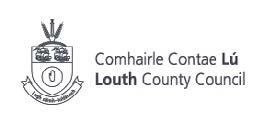

Â
Â
Â
Â
Â
Â
ÂVision
Â
Â
ÂStrategic Objectives
Â
Â
Â
Â
Â
Â
Â
Â
Â








Â
Â
Â
Â
Â
Â
ÂVision
Â
Â
ÂStrategic Objectives
Â
Â
Â
Â
Â
Â
Â
Â
Â

The Boyne Valley region has a rich history of food production and trade, dating back over 5,000 years The Boyne Valley Food Development Strategy 2024 - 2028 represents the region's progress in becoming a top food and drink destination in Ireland’s Ancient East This success is the result of collaboration between counties Meath and Louth and various industries, local authorities, and state agencies, including Fáilte Ireland, who support the new strategy
This strategy builds on the first food strategy for the region covering the period 2016 -2021, which focused on a vision "For the Boyne Valley region to be recognised as the leading national food and drinks destination ” Since then, Discover Boyne Valley Flavours has achieved significant successes, winning the “Foodie Destination” in 2016, being recognised as one of the “World’s Best Food Destinations” in 2019 by the National Geographic Traveller, and winning Most Innovative Food or Beverage Marketing Campaign for a Destination at the 2019 World Food Travel Association’s Food Trekking Awards The network now has almost 100 active food and drink businesses as members
Since the completion of the previous strategy, new initiatives have been developed in the region, including The Centre of Food Culture, Boyne Valley, established in late 2022 This was the result of a feasibility study into the viability of a Centre of Excellence celebrating Irish Food Culture, headquartered in the Boyne Valley
The new strategy brings together three pillars: the Discover Boyne Valley Flavours food and craft drinks network, Food Tourism, and The Centre of Food Culture, Boyne Valley These initiatives aim to realise the vision for the Boyne Valley region
Both Meath County Council and Louth County Council and their respective LEOs have recognised the importance of the food, agricultural, and tourism industries in the region's economic and social development and are delighted to launch the new Boyne Valley Food Strategy 2024 - 2028, reflecting the ambition of the region to build a thriving and enduring food and drink community and home to the first national centre of food culture
Joan Martin, Chief Executive, Louth County Council
Kieran Kehoe, Chief Executive, Meath County Council

Stories of our food and drink connect visitors with our place - with our landscape, our seas, our history, our heritage and our values Boyne Valley is a key part of Ireland’s Ancient East’s strong food offering, with a rich food heritage that is reflected in the scale and quality of indigenous food and drink producers distributed across the region Fáilte Ireland looks for every opportunity to encourage tourists to explore and stay in the region for longer, increase spend and helping to drive revenue for local businesses, which is why developing the Boyne Valley Food Development Strategy 2024 - 2028 is so important
We first identified food as a key element of the visitor experience through the development of Fáilte Ireland’s Ancient Destination Experience Development Plan in 2021 It was designed to link all elements of the heritage, culture, food and activity supply chain, dispersing visitors across the region and encouraging them to stay longer In preparing for these new opportunities, Fáilte Ireland created a Food Tourism Experience Development programme to support food enterprises interested in exploring tourism We’re so pleased to see this develop even further in the Boyne Valley region with this new strategy
We look forward to working with Meath County Council and Louth County Council to implement this strategy and build further on Boyne Valley’s great food provenance and enhance its reputation as a must visit food destination
Brian O’Flynn, Head of Ireland’s Ancient East, Fáilte Ireland


Food is central to the identity and heritage of the Boyne Valley From the ‘first farmers’ to our coastal communities, our producers and their quality produce have built a national profile for the Boyne Valley To build on this profile, the people and producers with the foresight and vision to originally establish a Boyne Valley food network now recognise the need for a more integrated approach linking all elements of the food ecosystem of the area
To ensure a co-ordinated approach over the period of 2024-2028, this ‘one plan’ approach will ensure all future development is aligned with the collective goals of all stakeholders The Boyne Valley Food Development Strategy represents a five year roadmap for our craft food and drink producers, food service and hospitality industry The plan brings together various projects and activities in one document working towards a collective vision for food across the Boyne Valley It includes a five year development approach for Discover Boyne Valley Flavours, The Centre of Food Culture, Boyne Valley and Food in Tourism across the Boyne Valley including the continued development of sea louth
Ensure a co-ordinated approach to developing the artisan food and drink network in the Boyne Valley
Deliver unique collaborative food projects such as The Centre of Food Culture, Boyne Valley
Develop a producer centric approach ensuring the artisan food and drink producer network are central to the Boyne Valley food story
Maximise the economic opportunity to sustain our artisan food and drink community
Ensure sustainability is central to the Boyne Valley food story and how food producers work with the local food service and hospitality industry
Ensure food is integrated into all future tourism development and a key part of the Boyne Valley visitor experience
Maximise new tourism product development opportunities such as the re-imagined Boyne Valley Drive, greenways and blueways to showcase Boyne Valley food produce and experiences
Develop a best in class food destination approach building on global trends for food experiences and visitor preferences for ‘tasting local’

The overall approach places the producer at the centre of everything Equally, collaboration has brought the Boyne Valley Food Network to this juncture and will remain a core focus within the plan This level of collaboration to date has inspired new approaches to food events, food experiences, industry networking and the emergence of new projects such as The Centre of Food Culture, Boyne Valley It builds on the success of the previous Boyne Valley Flavours Strategic Plan, the vision for The Centre of Food Culture, Boyne Valley and is directly aligned with tourism development plans for the area This includes the Fáilte Ireland Regional Tourism Development Strategy for Ireland’s Ancient East and the Ancient DEDP
Each of these plans place the producers, their experiences and Boyne Valley communities at the heart of their vision The Ancient DEDP places significant emphasis on food in tourism, recognising the role of food in influencing visitors to consider the destination The food in tourism approach will support the development of new and enhanced food and drink experiences to motivate visitors to explore the rural and coastal communities of the Boyne Valley New ways of telling the Boyne Valley destination story through food also represents a key element of the new Tourism Development Plan for Boyne Valley Tourism Food will become an integral part of future cluster development and a key experience as part of the re-imagined Boyne Valley Drive
The plan recognises the significance of the wider food and hospitality economy across the Boyne Valley with opportunities to increase the level of locally produced food on menus Many new initiatives have evolved in recent years, enabling visitors to “taste” the locality This includes sea louth and Boyne Valley Bites Similarly, opportunities such as the re-imagined Boyne Valley Drive will place a new focus on local food and experiences within communities across the Boyne Valley Investment in greenways and blueways will create further opportunities to introduce visitors to local food
A comprehensive research and consultation process was undertaken to develop the Boyne Valley Food Development Plan This included a Discover Boyne Valley Flavours conference, discussion groups with key stakeholders, Discover Boyne Valley Flavours members’ survey and an extensive round of industry, stakeholder and member consultations The views of over 80 stakeholders are reflected in the development of the five year strategy
Best practice was reviewed from international destinations An examination of global food and tourism trends was undertaken to identify new and emerging opportunities to consider The process also included an analysis of the previous Discover Boyne Valley Flavours strategic plan and the both the vision document and Feasibility Study for the Centre of Food Culture, Boyne Valley
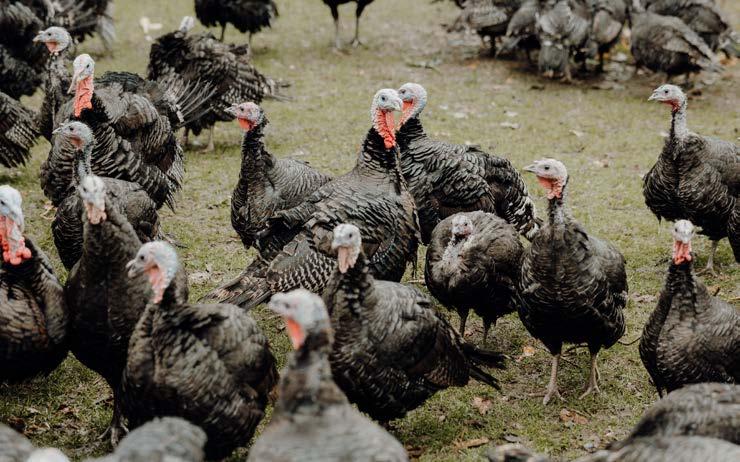

Our producers and food heritage is at the heart of everything we do
The Boyne Valley is recognised for its collaborative approach to developing food as a sustainable economic sector and a food destination where our producers are at the heart of our food culture.



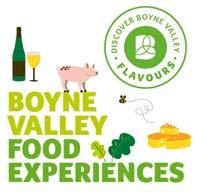


Engage with our producers and members
The Centre of Food Culture, Boyne Valley starts to deliver virtual activity and in destination event activity from Year 1
Grow membership levels and raise the profile of Discover Boyne Valley Flavours
Continued focus on the Discover Boyne Valley Flavours management, profile and events / special projects
The Centre of Food Culture, Boyne Valley begins to scale and impact on the destinations food story











Our food strategy is based on our collective approach to sustainability. Our vision is for the Boyne Valley to be recognised as a leading region for food sustainability and the role of food in contributing to our societal, environmental and economic obectives. To achieve our sustainability goals, this strategy commits us to;
1. Reduce our Boyne Valley food miles by encouraging people to buy local and seasonal produce to support our local growers and producers.
2. Contribute to our local economies and ensure sustainable livelihoods for our local growers and producers.
3. Showcase our local produce providing consumers with a direct connection to the farmers and producers responsible for producing quality Boyne Valley food produce.
4 . Develop Boyne Valley food experiences that enhance people’s relationships with food by connecting them with nature and the regeneration of our agriculture, food systems, and food production.





Dear Discover Boyne Valley Flavours members and friends,
We spoke to many of you whilst developing this strategy for the next five years, I hope that you feel it reflects your own inputs and hopes for the group over the next few years. As we move into this next phase it is important to remember what the core purpose of the group is. We are a collective of local food producers and food service providers who through working together strive to help each other grow and prosper and to create a fertile landscape where new food producers can join us and thrive.
Our greatest strength is the support we can give each other and to gain that strength we must all endeavour to reach out and get involved. Success for this group, for each of us individually and for the whole food community of the Boyne Valley will be so much more easily achieved with a thriving, active, representative network.
We have worked hard for, and been fortunate to achieve, huge support from Meath Co Council, Louth Co Council, and Fáilte Ireland. This support has allowed us to have, amongst other things, dynamic and energetic support from our Food Business Development Officer and administrator. With these resources and a clear vision for the next five years together we can achieve so much.
Kevin Sheridan Chairperson, Discover Boyne
Valley Flavours



To build a thriving and enduring food and drink community and culture in the Boyne Valley region. Our producers and food heritage is at the heart of everything we do

1. Almost 100 active network members throughout the entire region
2. An active programme engaging restaurants and hotels in the region leading to Boyne Valley produce appearing on menus
3. A proven track record over a long period in delivering quality events and supports for producers
4. Recognised nationally as a leading food network
5. Strong relationships with local agencies who deliver support to the network
1. Attracting new talent to the movement and network projects
2. A lack of diversity of producer types within the region
3. Communicating the vision, goals and benefits of the network to members and potential members
1. Scope and enthusiasm for partnering with regional restaurants and hotels to benefit producers and the whole region
2. Growth of our network of engaged producers
3. A growing demand from the public for engagement with authentic food experiences and food with genuine provenance
4. The creation of an environment within the Boyne Valley region which encourages new food start-ups
5. Growth of the food in tourism opportunity to add value to producers’ commercial activities
6. The benefit from an array of tourism initiatives across the entire region
1. Demands on small business owners can mean that little time is available for supporting the network
2. A challenge for the distribution infrastructure for small producers who wish to supply food service
3. The economic viability of small-scale food production






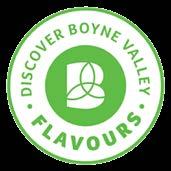

1 2 3

4
Discover Boyne Valley Flavours Network Growth
Governance
Sustainable Food Economy
Grow the impact of the Discover Boyne Valley Flavours network

Strengthening the structures to grow and sustain the Discover Boyne Valley Flavours network
5
Awareness & Profile
Linking producers with food service to foster more sustainable local economies
6
Food Partnerships
Grow the profile of Discover Boyne Valley Flavours to deliver new opportunities for our Discover Boyne Valley Flavours network
Build the capabilities of the Discover Boyne Valley Flavours network and explore new opportunities through our partnership approach
Food Tourism
Destination
Develop the Food in Tourism opportunity to showcase our producers and products

Grow the membership base across a number of redefined categories to reflect the range and diversity of the food eco-system in the Boyne Valley.

Grow the impact of the Discover Boyne Valley Flavours network

Grow the relevance and role of the network for all categories of our membership.
Develop an annual network members engagement programme to grow participation among members in network activity.

Implement an annual training programme relevant to the needs of the network.
Inspire the next generation of producers to become active members of the network and engage with network activities.
This strategic objective is supported by a separate detailed programme of work
Example Action - Devise an annual member event schedule based on training and capability building programmes, networking and The Boyne Valley Food Series.


Develop effective committee structures based on the evolving requirements of the network and future focus.

Strengthening the structures to grow and sustain the network

Establish a partnership advisory group with representatives of all key agencies.
Develop new approaches to reporting and network communications.
Attract new members to become actively involved.
This strategic objective is supported by a separate detailed programme of work
Example Action - Undertake a committee review to restructure the composition of the committee to consider the inclusion of representatives from the re-defined membership groups.


Develop our profile for food sustainability by having higher levels of local produce featured on local menus.

Achieve recognition for our producers and regional approach to food sustainability

Create the systems and structures to link our producers with our food service network.
Create the platforms to showcase our producers and their products.
Deliver Discover Boyne Valley Flavours initiatives that will generate demand for our producers’ products.
This strategic objective is supported by a separate detailed programme of work
Example Action - Revisit the development of a Discover Boyne Valley Flavours Local Food Charter to be adopted by producers and food service outlets supporting the use of local food on menus through Boyne Valley Bites


Develop a new approach to communicating to our network.

Grow the profile of Discover Boyne Valley Flavours to deliver new opportunities for our network

Deliver a best-in-class approach to marketing our activities and profiling our members.
Develop an innovative event programme built from the success of the Boyne Valley Food Series.
Grow the reach and use of the Discover Boyne Valley Flavours brand among our members.
Develop a collective network approach to digital marketing and how we embrace social media to raise our profile.
This strategic objective is supported by a separate detailed programme of work
Example Action - Undertake an independent review of the Discover Boyne Valley Flavours brand to ensure our brand and brand messaging is effective in how we engage with consumers, stakeholders and members of the Discover Boyne Valley Flavours network


Develop our strategic partnerships for the benefit of our communities.

Build the capabilities of the Discover Boyne Valley Flavours network and explore new opportunities through our partnership approach
Establish national and international alliances to guide how we develop as a network.
Work with our regional partners to ensure our members have access to the best possible resources and development opportunities
This strategic objective is supported by a separate detailed programme of work
Example Action - Establish a National Peer Network / Learning Alliance for knowledge sharing with one food network based in Ireland
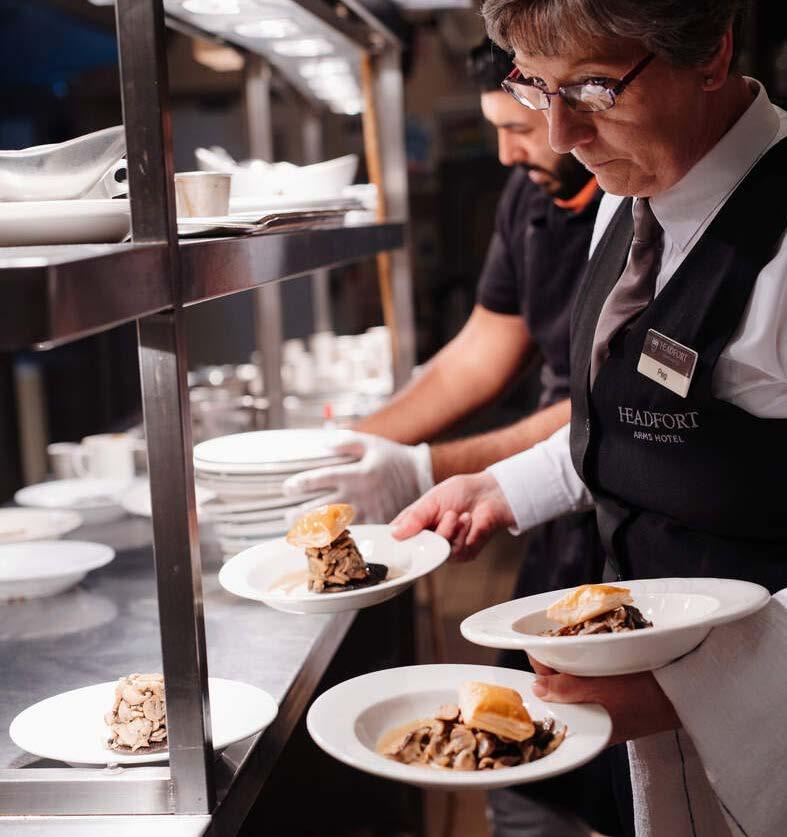

Introducing visitors to our food communities across the Boyne Valley

Developing collaborative and cluster projects linking people and place
Boyne Valley Food Story & Experience
Delivering legendary Boyne Valley food & craft drink experiences

Placing Boyne Valley producers at the heart of the Boyne Valley food in tourism experience

Introducing visitors to the food communities of the Boyne Valley

1
2
Boyne Valley food experience route –linking to the reimagined Boyne Valley Drive
4
The Boyne Valley Food Series / niche food events
3
Continued enhancement of the sea louth scenic seafood trail & Táin Trail linkages with food Food festival and inclusion in destination festivals
5
Dining, food & the nighttime economy
This strategic objective is supported by a separate detailed programme of work.
Example Action
Deliver one annual signature Boyne Valley Flavours Food and Drink Festival aligned with the theme of The National Centre of Food Culture; Samhain Festival

Producers at the heart of the Boyne Valley Food in Tourism Experience

2
Introducing producers to the tourism opportunity
Developing farmers markets experiences
3
1 4
Developing Boyne Valley Bites within local dining experiences
Accessing Boyne Valley artisan produce across the destination
This strategic objective is supported by a separate detailed programme of work.
Example Action
Deliver a visitor attractions local food programme profiling local produce in visitor attractions catering and retail operations and encouraging their adoption of a Boyne Valley Local Food Charter


1
Boyne Valley food personalities – meeting our producers and ambassadors
Telling the food heritage story of the Boyne Valley through Food
2
3
Destination food story on local menus – 5,000 years of food
This strategic objective is supported by a separate detailed programme of work.
Grow the annual number of food producers across the Boyne Valley delivering a visitor experience Example Action
4
Boyne Valley collaboration – dining events
Meet the Maker experiences

PROVENANCEBoyne Valley Food Experiences
Delivering Legendary Boyne
Valley Food & Craft Drink Experiences

1
2
sea louth experience development
3
Development of seasons of food experiences and packages
4
Distillers & brewers experience trail
Food & activities –creating hybrid Boyne Valley experiences
This strategic objective is supported by a separate detailed programme of work.
Grow the number of visitor experiences and dining experiences on the sea louth scenic seafood trail Example Action






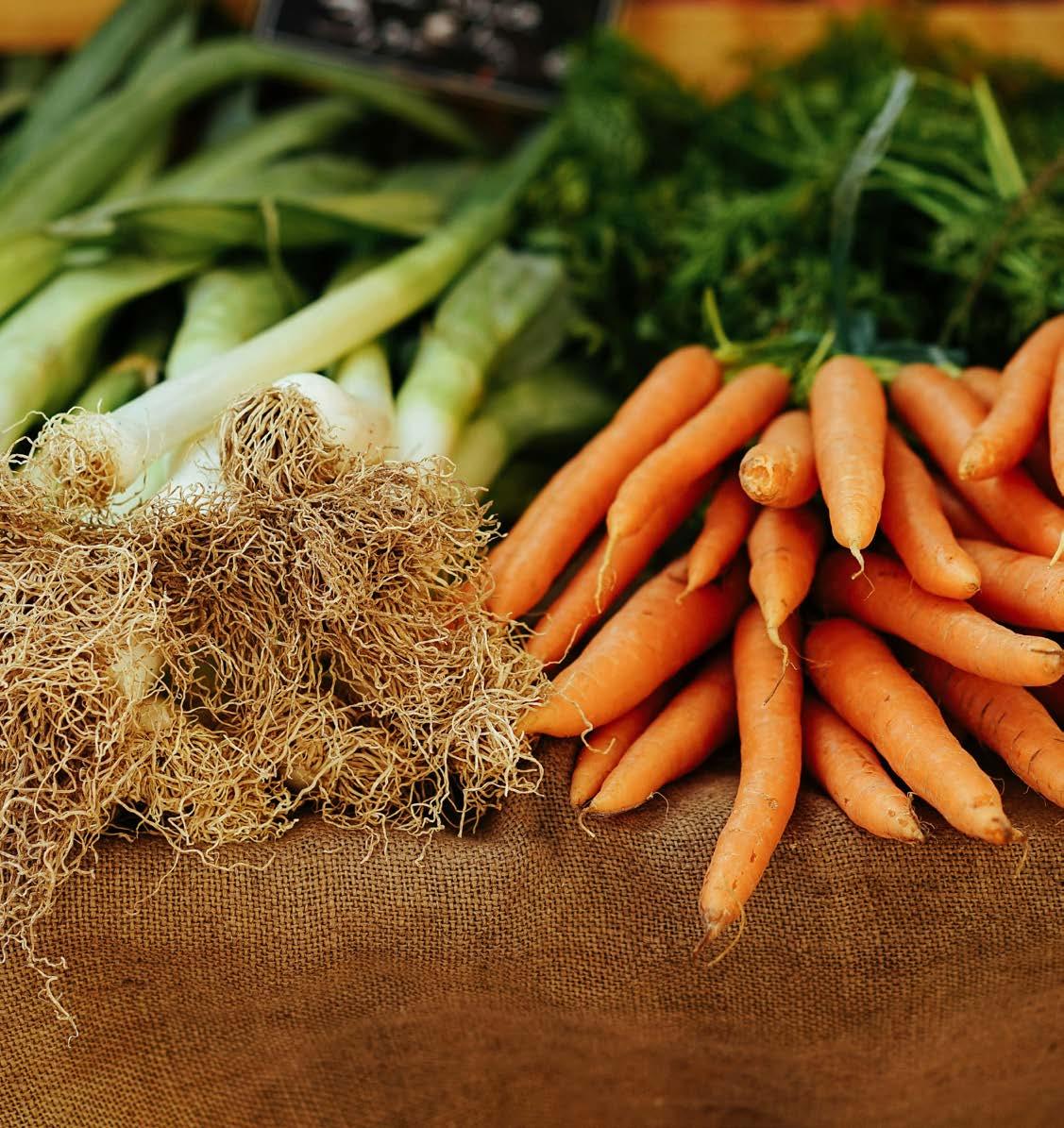


Ireland has enjoyed a food and cultural revolution over the past 25 years, but there is evidence of farming and food production in the Boyne Valley for millennia. Modern Irish food culture has rapidly gained in confidence, relevance, national and international renown over the past two decades. There remains huge untapped potential. We are an ancient people, a relatively new nation, a people with a complex relationship with our food heritage. We are a nation with immense resources in terms of our farming heritage, our climate, our land and most of all our creative and dynamic people.
Today, our understanding of gastronomy has deepened as we recognise the relationship that food has with society and its vital part of our intangible cultural heritage – social gastronomy. A vibrant food culture acts as a catalyst for change, bridging the gap between art, science, history and our environmental ambitions. Throughout Ireland, we have begun to appreciate how our food culture contributes to the quality of our lives.
Thanks to our thriving food network and the support around it, the Boyne Valley has lead the charge in celebrating our food and culture, and in the creation of The Centre of Food Culture, Boyne Valley -the first of its kind on the island of Ireland. The Centre of Food Culture, Boyne Valley will act as a catalyst for a step change about how we value Irish food culture and build greater cohesiveness and a stronger shared identity within our food culture.
We are truly grateful that alongside the remarkable support of Meath and Louth County Councils and Fáilte Ireland, The Centre of Food Culture, Boyne Valley now comes to life to preserve and celebrate our food culture past, present and future. This strategy sees the emergence and activity of the Centre of Food Culture as one of the three key pillars for the continued development of the Boyne Valley region as a forerunner in Ireland’s food story.
We hope you will become part of this exciting journey so we can together achieve our vision.
Olivia Duff, Chairperson, The Centre of Food Culture, Boyne Valley



Our producers and food heritage is at the heart of everything we do

A vibrant, creative, sustainable, regenerative and interconnected food culture.
To create a national centre for food and drink culture, originated in the Boyne Valley, to facilitate education, discussion, enterprise and advocacy by connecting people to their food, soil and sea.


Our values will guide us in all elements of our work, in how we serve our communities and stakeholders and in the impact we have on the development of our food culture in Ireland.


Making our initiatives available to everyone.
Valuing the origin of our food, from the soil and sea to people, and the journey this food takes.

Sharing knowledge and skills through learning and experience. Education
Enhancing people’s relationship with food by connecting them with nature and the regeneration of our agriculture, food systems and food production.

Working in partnership with all stakeholders for the shared benefit of all.


The strategic pillars of The Centre of Food Culture, Boyne Valley are reflected in all activities of the organisation:

Celebrate and develop the food culture, in Ireland based on the relationship society has with food, soil and sea, our food heritage and wider stakeholders
Preserve and build on our food heritage and craftsmanship
Create a digital library of food heritage, craft and culture
Create and provide access to authentic and immersive food experiences, insight and transfer of knowledge working with the best of regional and national quality food producers
Facilitate learning through connective experiences between consumers and food producers




Access to knowledge and skills through life- long learning about food culture for current and future generations
Access to critical thinkers and practitioners vital to the development of our food industry This will include themes such as sustainability, food culture, regeneration, history and sociology, craftsmanship and heritage
Partner with domestic and international established networks and academic institutions to facilitate accreditation, access to research programmes and create an international education focus
Train best in class craft producers to become qualified educators to facilitate knowledge transfer
Provide fundamental culinary skills education to consumers
Connect domestic and global food producers, consumers, food professionals and service providers through an effective network to educate, share knowledge, stories and skills
Provide a collaborative space for food producers, consumers, food professionals and service providers to connect and share experiences and for ideas to emerge
Help food producers, consumers, food professionals and service providers connect to the source of our food and create ties with the soil and sea
2 3 4 5
Grow our authentic Irish food culture which has a positive impact on all our stakeholders
Increase the demand for sustainably produced local food of quality thereby increasing the economic viability of quality food producers and food businesses, through education
Foster an entrepreneurial ethos and strengthen the conditions that enables job creation through a stronger food culture
Strengthen rural development and employment through a stronger food culture
Maximise our food tourism potential through the further development of and sharing of Irish food culture and heritage
Engage with our government bodies, state agencies and institutions to help reframe how we think about Irish food by creating conversations and opinion changing dialogue in all we do
Inform and influence food education policy
Build a shared identity and cohesiveness around our fast-developing Irish food culture
Work in partnership with our state agencies to support and serve our food producers, creating a strong food culture


Governance and Structures
Building connections with local, national and international stakeholders
Delivering events and projects for The Centre of Food Culture, Boyne Valley
Scaling The Centre of Food Culture, Boyne Valley


The following actions contain an overview of the work plan for Centre of Food Culture, Boyne Valley, and is supported by a detailed operational action plan.
1.1 Grow a Board of Directors representative of the key skill sets required to achieve the overarching ambition for The Centre of Food Culture, Boyne Valley
1.2 Form an Action Group compiled of individuals with the expertise, network and shared vision to develop The Centre of Food Culture, Boyne Valley and contribute to certain projects
1.3 Complete the process to achieve charitable status for the company
1.4 Host an annual review to assess the effectiveness of governance structures in place
1.5 Locate an appropriate physical space to accommodate the initial administrative base and office facilities to host the full-time Development Manager of The Centre of Food Culture, Boyne Valley
1.6 Identify the key stakeholders of The Centre of Food Culture, Boyne Valley, including but not limited to: Food Service Providers, Food Professionals, Food Producers, Consumers, Private Companies, State & EU Agencies and other Public Stakeholders, Domestic and International Academic Institutions, International Food Movements, Local Community Groups & Networks
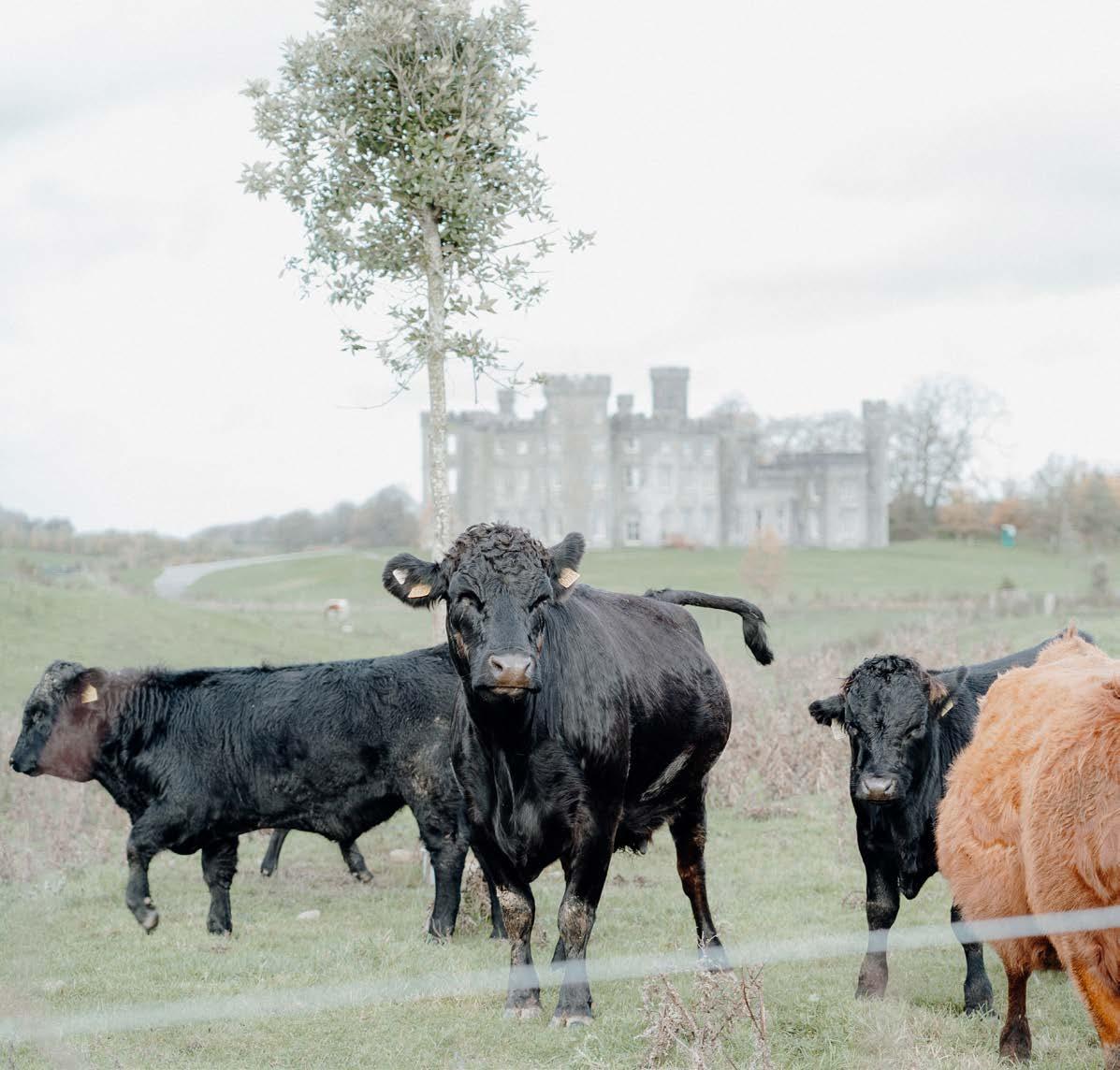
2.1 Begin to develop and deliver a calendar of events, engaging with each of our stakeholder groups These events over time, will include:
• The annual flagship festival for The Centre of Food Culture, Boyne Valley; Samhain Festival of Food and Culture, involving all stakeholders
• Other projects connecting stakeholders within the industry including:
• Webinars
• Masterclasses on specific food and drink crafts and skills
• Farm walks
• Young cooks programmes
• Lifelong learning and continued professional development programmes
• Summer and winter schools
• Accredited courses
2.2 Develop a strategic partner programme to identify opportunities for co-delivery of programmes, events and educational activity
2.3 Develop a new brand for The Centre of Food Culture, Boyne Valley supported by the appropriate brand and communications programme
2.4 Develop a digital programme (including website and social media channels) to act as the key communications resource for The Centre of Food Culture, Boyne Valley
2.5 Begin to establish a stakeholder database locally, regionally, nationally and internationally
2.6 Connect with international stakeholders with a view to exploring opportunities for joint projects
2.7 Begin scoping in relation to the requirements to build a library of heritage food & drink crafts and skills This will act as a repository for food heritage, historical food methods and living history opportunities

3.1 Assess the requirements of the Executive Team and possibility of expansion
3.2 After a period of delivering activity for The Centre of Food Culture, Boyne Valley, assess the needs for a physical campus for The Centre of Food Culture, Boyne Valley
3.3 Undertake an assessment of the educational event programme for each stakeholder to date and develop programming for Year 2
3.4 Host a stakeholder communication event at the flagship event of The Centre of Food Culture, Boyne Valley that represents an annual briefing on the work programme
3.5 Based on the findings from scoping in Year 1, undertake the library of heritage food & drink crafts and skills project
3.6 International Partner Identificationbased on connections established in Year 1, undertake a review of potential international partners with whom to develop joint projects
3.7 Research Partners - based on connections established in Year 1, establish collaborations with Third Level Institutions to deliver projects for The Centre of Food Culture, Boyne Valley, including research projects and internships

4 Year 3 - 5
4.1 Undertake a review of stakeholder sentiment through a consultation process to determine areas for future development, improvement and future opportunities
4.2 Implement findings based on the outcome of the assessment of the needs for a physical campus for The Centre of Food Culture, Boyne Valley
4.3 Continue to develop and strengthen collaborative programmes with Third Level Institutes, introducing a number of PhD students to the Centre of Food Culture focused on emerging opportunities with stakeholders, private sector and agency partners
4.4 Establish an advocacy community that represents a focal point to input into national programmes for our key stakeholders e g artisan producers
4.5 Continue to develop and expand the educational event programme, with an increased national focus
4.6 Develop international programmes to include accreditation and recognition through the Erasmus Programme

